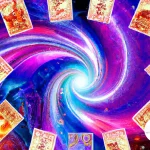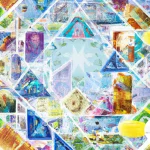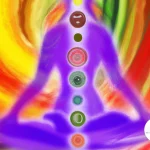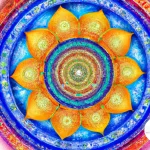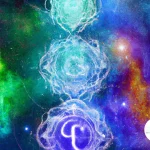Exploring the Fascinating History and Origins of Numerology
Have you ever wondered about the ancient roots and development of numerology? This mystical practice, dating back thousands of years, holds a captivating history that continues to shape our understanding of numbers and their significance today. From its origins in ancient civilizations to its modern interpretations and widespread adoption, numerology has evolved into a popular belief system that influences both personal and professional realms. Join us on a journey through time as we uncover the fascinating story behind the history and origins of numerology.
Ancient Beginnings
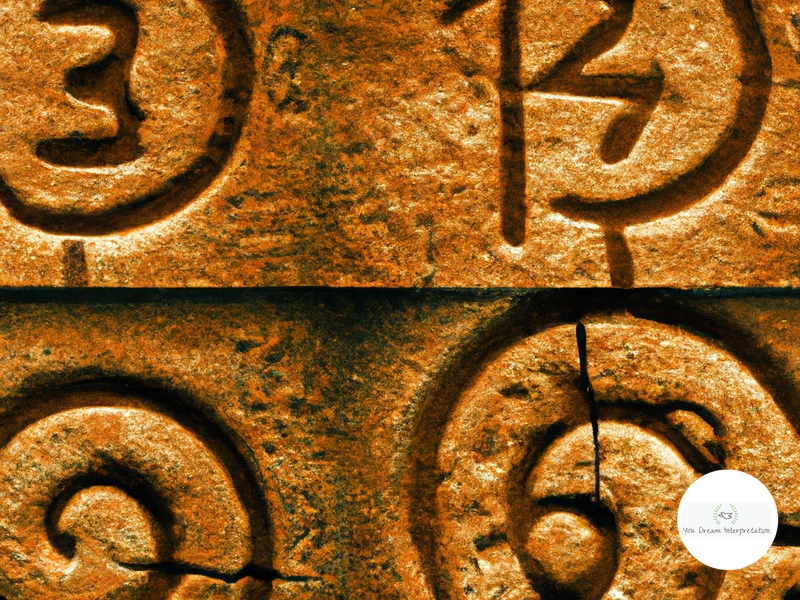
The Origins of Numerology can be traced back to the ancient civilizations of Babylon, Egypt, and China. These early cultures recognized the profound significance of numbers in the natural world and their connection to human life. In Babylon, for example, numerology was integrated into various aspects of daily life, including divination and astrology. Egyptian priests utilized numerology to gain insights into the mysteries of the universe and the human soul, while in China, numerical values were assigned to the names of individuals to guide their destinies. However, it was the Greek philosopher Pythagoras who truly revolutionized the field of numerology and laid the groundwork for its modern applications. Through his extensive studies and teachings, Pythagoras unlocked the power of numbers and their ability to reveal profound truths about the universe and human existence. This marked the beginning of a new era in numerology, where its influence would continue to expand and evolve.
The Origins of Numerology
|
The origins of numerology can be traced back to ancient civilizations such as Babylon, Egypt, and China. These cultures recognized the power and significance of numbers, believing that they held deeper meanings and connections to the natural world. In Babylon, numerology was an integral part of their daily lives, utilized in divination and astrology practices. Numerological interpretations were used to predict the future, make important decisions, and understand the influences of the celestial bodies. In ancient Egypt, the priests studied numerology extensively, believing that numbers held insights into the mysteries of the universe and the divine nature of human beings. They saw numerical patterns in various aspects of life, such as the cycles of the moon and the movements of the planets. China also played a significant role in the development of numerology. Chinese numerology focused on assigning numerical values to names and characters. These values were believed to have a direct impact on the destiny and character of an individual, influencing their path in life. |
The Role of Pythagoras
The Role of Pythagoras in the development of numerology cannot be overstated. Pythagoras, a Greek philosopher and mathematician, made significant contributions to the field that laid the foundation for modern numerological practices. He believed that numbers were not just abstract symbols but had inherent qualities and vibrations that could provide insight into the essence of life itself. Pythagoras saw numerical patterns as the key to understanding the world and developed the concept of the Pythagorean Numerology system. This system assigned values to letters and sounds, which allowed for the numerical interpretation of words, names, and phrases. These values, known as Pythagorean numerology or Pythagorean numerology chart, enabled individuals to gain insight into their personal characteristics, life paths, and potential outcomes. Pythagoras believed that by studying and understanding numbers, one could unlock the secrets of the universe and align themselves with their true purpose. His teachings and theories influenced the development of numerology for centuries to come, and his legacy continues to shape the practice today./align-career-life-path-success/
Development and Expansion
Numerology continued to flourish and expand in various ancient civilizations. In ancient Greece, the concepts introduced by Pythagoras were further developed by his followers, who believed that numbers held the key to understanding the fundamental patterns of the universe. Numerology also found a prominent place in ancient India, where it became an integral part of Vedic astrology and influenced various aspects of life, such as naming conventions and determining auspicious dates for important events. As trade routes expanded, numerology spread to other cultures, including the Arab and Roman civilizations. The Romans, in particular, used numerology to predict future outcomes and make important decisions. The impact of numerology on personal and societal aspects of life continued to grow, captivating individuals with its ability to provide insight and guidance.
Numerology in Ancient Civilizations
In the ancient civilizations of Babylon, Egypt, and China, numerology played a significant role in shaping cultural beliefs and practices. Let’s delve into the fascinating world of numerology in these early societies:
1. Babylonian Numerology:
– Babylonians believed that numbers possessed a divine essence and held the key to understanding the universe.
– Numerology was closely intertwined with astrology, as they believed that each number corresponded to a celestial body and had specific meanings.
– Babylonian priests used numerology for divination, predicting the outcomes of events, and guiding decision-making processes.
– The practice involved assigning numerical values to letters and words, enabling individuals to interpret their meanings and gain insights into their lives.
2. Egyptian Numerology:
– Egyptians believed that numbers had magical properties and were closely linked to the spiritual realm.
– Numerology played a crucial role in deciphering the mysteries of the human soul, offering guidance for spiritual growth and self-discovery.
– Egyptian priests employed intricate mathematical calculations based on a person’s birth date and name to determine their destiny and personality traits.
– Numerology also influenced the construction of sacred structures and the timing of important rituals.
3. Chinese Numerology:
– Chinese culture has a rich history of numerology, associating numbers with concepts such as balance, harmony, and cosmic energy.
– Numerology in China focused on the interpretation of numbers in names and their impact on an individual’s destiny.
– Certain numbers were considered lucky or unlucky, guiding choices in various aspects of life, including naming newborns, selecting auspicious dates, and even designing buildings.
– The Chinese system of numerology emphasized the balance between Yin and Yang energies and their influence on personal and societal well-being.
Throughout these ancient civilizations, numerology served as a guiding force, providing insights into the mysteries of the universe, human destiny, and the interconnection between numbers and life events. The impact of numerology can still be felt today, as people seek to unlock the secrets hidden within numbers and explore their soul’s deepest desires and fulfillment.
internal link
Spread and Adaptation
During the spread and adaptation of numerology, the practice found its way into different cultures and belief systems, allowing it to grow and develop in unique ways. In ancient Greece, Pythagorean teachings and numerological principles became a fundamental part of philosophical and spiritual exploration. The ideas of Pythagoras were then passed down through his disciples, giving rise to a Pythagorean school of thought that carried the torch of numerology into the future. In the Middle East, Arabic cultures embraced numerology and integrated it with their own systems of divination, such as astrology and geomancy. Meanwhile, in India, the ancient science of Vedic numerology emerged, which greatly emphasized the mystical properties of numbers and their links to cosmic energies. As trade routes flourished, numerological knowledge spread across continents, influencing cultures as diverse as Persia, Egypt, and Rome. Over time, numerology adapted and assimilated into various belief systems, including Christian mysticism, Jewish Kabbalah, and even the occult practices of the Renaissance period. This widespread adoption and adaptation of numerology ensured its survival and allowed it to thrive amidst the ever-changing landscapes of human consciousness.
Modern Interpretations
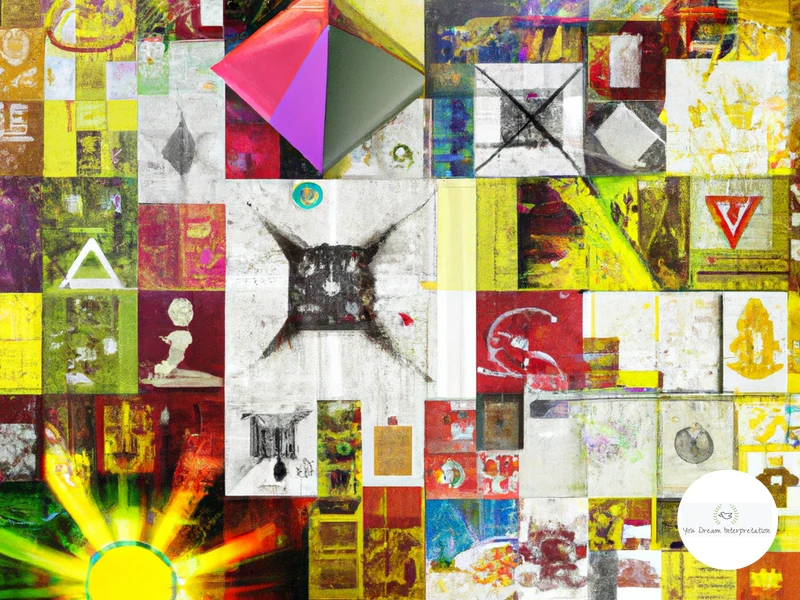
The Influence of the New Age Movement has played a significant role in shaping modern interpretations of numerology. As people became increasingly interested in spirituality and self-discovery, numerology experienced a resurgence in popularity. It became seen as a powerful tool for understanding oneself and navigating life’s complexities. Today, numerology is integrated into various aspects of popular culture, including books, websites, and even smartphone apps. People turn to numerology for guidance in making important life decisions, understanding their personality traits and life path, and even choosing names for their children. With its ability to provide insights and predictions based on the symbolism and vibrations of numbers, numerology continues to inspire and captivate individuals seeking a deeper understanding of themselves and the world around them.
The Influence of the New Age Movement
The Influence of the New Age Movement in numerology has been significant, as it has helped popularize and mainstream the practice. The New Age Movement, which emerged in the late 20th century, encompassed a wide range of spiritual and holistic beliefs and practices. Numerology found a natural place within this movement due to its mystical and esoteric nature. Many New Age practitioners embraced numerology as a tool for self-discovery, personal growth, and spiritual enlightenment. It resonated with the movement’s focus on holistic well-being and the interconnectedness of mind, body, and spirit.
One of the key impacts of the New Age Movement on numerology was the development of new numerological systems and methods. Practitioners began integrating different spiritual traditions, astrology, and metaphysical concepts into numerology, expanding its scope and possibilities. These new approaches appealed to a broader audience and attracted individuals seeking alternative and intuitive methods of self-reflection and guidance.
The New Age Movement played a crucial role in introducing numerology to a wider audience through books, workshops, and online platforms. Bestselling authors like Louise Hay and Doreen Virtue popularized numerology by incorporating it into their books on self-help and spirituality. This exposure led to an increased interest in numerology and opened doors for its integration into various aspects of popular culture.
Today, the influence of the New Age Movement on numerology can be seen in the multitude of online numerology resources and services available. Websites and mobile applications offer numerological readings, compatibility assessments, and personalized reports, catering to individuals seeking guidance in relationships, career choices, and personal development. The New Age Movement’s emphasis on individualism and self-empowerment aligns well with the personalized approach of numerology, making it a natural choice for those seeking deeper meaning and insight.
The New Age Movement has had a profound impact on numerology, fueling its growth, and making it more accessible to a wider audience. By embracing numerology as a tool for self-discovery and personal growth, the movement has helped shape and expand the practice, contributing to its integration into popular culture and its ongoing relevance in today’s spiritual landscape.
Integration into Popular Culture
In recent decades, numerology has seamlessly integrated itself into popular culture, captivating millions of individuals worldwide. This widespread adoption can be attributed to various factors, including the New Age movement and the increasing interest in spirituality and self-discovery. As people seek meaning and guidance in their lives, numerology offers a unique and accessible tool for self-reflection and personal growth.
One significant way numerology has permeated popular culture is through the use of numerological concepts in entertainment media. Movies, television shows, and books often incorporate numerological themes, showcasing characters who possess specific numbers or encounter life-altering events based on numerological principles. This inclusion serves to both entertain and educate audiences, raising awareness and piquing curiosity about numerology.
Additionally, numerology has found a place in the world of digital technology. Numerous websites and mobile applications now offer online numerology readings, allowing individuals to explore their numerological profiles and discover insights about their personalities, life path, and relationships. These user-friendly platforms have made numerology more accessible than ever before, attracting a wider audience and contributing to its integration into everyday life.
The compatibility aspect of numerology has garnered attention in popular culture. Many people turn to numerology when seeking compatibility assessments for their relationships, including romantic partnerships, friendships, and professional collaborations. Numerology offers a unique perspective on relationships by analyzing the vibrational frequencies and energy dynamics between individuals, providing insights into compatibility and potential challenges.
The influence of numerology can also be observed in other cultural domains such as fashion, art, and design. Artists and designers often incorporate numerological symbols, patterns, or motifs in their creations, believing that it adds a deeper layer of meaning and resonance. This integration not only appeals to those who are already familiar with numerology but also sparks the curiosity of those encountering these symbols for the first time.
The integration of numerology into popular culture has helped to raise its profile and bring it into the mainstream. From its presence in entertainment media to the availability of online numerology services, numerology has become more accessible and widely recognized. As individuals continue to seek meaning and guidance in their lives, numerology offers a rich and intriguing avenue for self-discovery and personal growth. The incorporation of numerological concepts in various cultural domains further solidifies its presence and leaves a lasting impact on popular culture.
Numerology Today
In the present day, numerology continues to thrive and capture the interest of individuals seeking deeper insights into their lives. Professional numerologists offer their expertise to guide individuals on various aspects of their lives, from aligning their career path to finding fulfillment in their personal relationships. These experts analyze the numerological aspects of an individual’s name and birth date to uncover hidden patterns and provide valuable advice. The rise of the digital age has led to the emergence of online numerology services, making this ancient practice even more accessible. People now have the opportunity to explore their numerological profiles, delve into their soul urge numbers, and even seek guidance in choosing baby names using numerology. This modern adaptation and integration of numerology into contemporary culture demonstrate its enduring relevance and appeal in today’s world.
Professional Numerologists
Professional Numerologists are experts in the field of numerology who have dedicated their careers to studying and interpreting the significance of numbers. These individuals possess an in-depth understanding of the ancient systems and methodologies used in numerology, allowing them to provide accurate and insightful readings to their clients. Professional numerologists often undergo extensive training and education to refine their skills and enhance their knowledge. They possess a deep understanding of the various numerological systems, such as the Pythagorean system, Chaldean system, and the Kabbalah system, among others. These experts are able to analyze numbers in a person’s birthdate, name, or other relevant factors to uncover hidden patterns and meanings. With their expertise, professional numerologists provide guidance and insight into various aspects of a person’s life, including relationships, career, health, and personal development. They help individuals understand their strengths and weaknesses, make informed decisions, and navigate important life choices. Many people seek the services of professional numerologists for their guidance and validation as they believe in the power of numerology to provide deep insights and guidance. Whether you are looking for validation, self-discovery, or guidance in aligning your life path, professional numerologists can provide invaluable support and advice based on the unique numerical patterns and vibrations that resonate with your life.
If you are interested in exploring the role of numerology in your professional life, you might want to consider consulting a professional numerologist to gain insights into your career path, life purpose, and potential for success. By understanding the numerological influences that shape your professional journey, you can make informed decisions, harness your strengths, and overcome challenges. Professional numerologists can provide personalized analysis and recommendations based on your unique numerological profile. By examining key factors such as your life path number, destiny number, and soul urge number, numerologists can offer guidance on choosing the right career path, making strategic career moves, and maximizing your potential for success. Unlock the power of numerology in shaping your professional life and take a step towards aligning your career with your true purpose.
Note: Remember that this section refers to “Professional Numerologists” and does not contain a relevant anchor text to include an internal link.
Online Numerology Services
In the digital age, numerology has made its way to the realm of online services, offering individuals convenient and accessible ways to explore this ancient practice. Online numerology services provide a range of tools and resources to help people gain insights into various aspects of their lives. One common feature found on these platforms is the option to calculate and interpret personal numerology charts. Users can input their name and birth date to generate a comprehensive analysis that reveals their life path number, destiny number, and other key numerological influences. These services often provide detailed explanations and interpretations of these numbers, helping individuals better understand their personality traits, strengths, and potential challenges. Online numerology services may offer compatibility readings, providing insights into relationships and compatibility with others. Some platforms may also provide personalized guidance for important decisions, such as choosing a career or making life-altering choices. This can be particularly helpful for individuals seeking clarity and direction in their lives. Whether it’s exploring the impact of name changes, analyzing important dates, or delving into the significance of specific numbers, online numerology services offer a vast array of resources to cater to individuals’ curiosity and quest for self-discovery. Additionally, these services often provide articles and educational content to help users deepen their understanding of numerology and its applications. It is worth noting that while online numerology services can offer valuable insights, it is important to approach them with a discerning mindset and combine their findings with personal intuition and self-reflection.
Conclusion
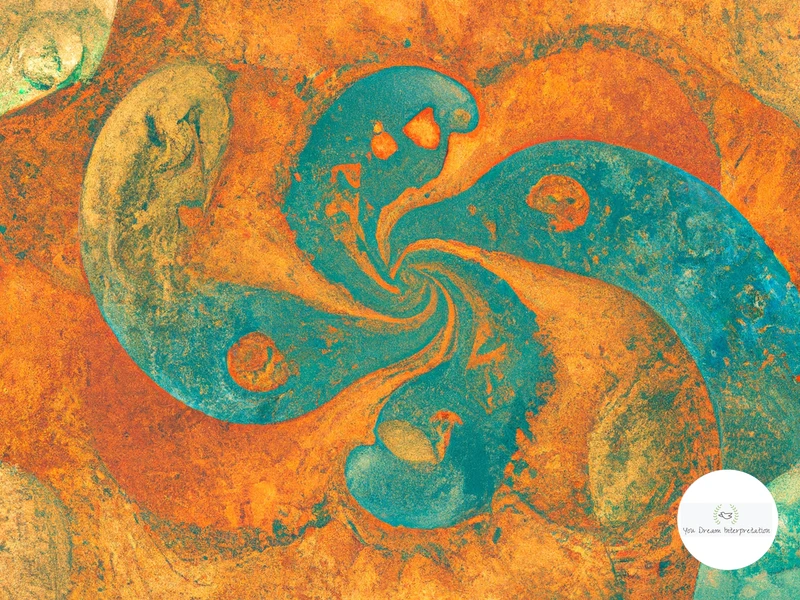
In conclusion, the history and origins of numerology reveal a rich tapestry of ancient wisdom and mystical beliefs surrounding the power of numbers. From its beginnings in ancient civilizations such as Babylon, Egypt, and China, numerology has come a long way, shaped by influential figures like Pythagoras. While its roots lie in divination and astrology, numerology has expanded and adapted throughout history, finding its place in various cultures and belief systems. Today, numerology continues to captivate individuals seeking insights into their personal lives, relationships, and even career paths. Professional numerologists offer their expertise to guide and provide interpretations based on intricate numerical calculations. Additionally, online numerology services have made this ancient practice accessible to a wider audience, allowing people to explore the meanings and influences of their names, birthdates, and other significant factors. As numerology integrates into popular culture, its impact can be seen in various industries ranging from self-help to entertainment. Whether one sees numerology as a mere pseudoscience or a valuable tool for self-discovery, its enduring popularity speaks to the human fascination with finding meaning and connections in the realm of numbers. The history and development of numerology remind us of the enduring human quest for knowledge and understanding, urging us to seek deeper insights into the mysteries of the universe and our own lives.
Frequently Asked Questions
1. What is Numerology?
Numerology is a belief system that assigns meaning and significance to numbers. It is based on the idea that numbers hold intrinsic qualities and vibrations that can offer insights into various aspects of life, including personality traits, relationships, and even future events.
2. How does Numerology work?
Numerology uses calculations based on a person’s birthdate, name, and other factors to determine their unique numerological profile. These calculations involve reducing numbers to single digits and analyzing their symbolism and vibrations to gain deeper understanding and interpretation.
3. Can Numerology predict the future?
Numerology is not a predictive science. Instead, it offers insights and guidance based on the inherent qualities and vibrations associated with specific numbers. It can help individuals gain self-awareness, make informed decisions, and navigate life’s challenges more effectively.
4. What role did Pythagoras play in Numerology?
Pythagoras, the renowned Greek philosopher and mathematician, is often regarded as the father of numerology. His teachings and theories laid the foundation for understanding the mystical properties of numbers and their influence on human life.
5. How has Numerology evolved over time?
Numerology has evolved and adapted throughout history, incorporating influences from various cultures and belief systems. It has expanded beyond its origins in divination and astrology to become a tool for personal growth, self-discovery, and even practical decision-making.
6. Can Numerology be applied to personal relationships?
Yes, Numerology can provide insights into the dynamics of personal relationships. By examining the numerological profiles of individuals, compatibility can be assessed, strengths and challenges can be identified, and steps can be taken to improve communication and understanding.
7. Are there different types of Numerology?
Yes, there are various systems and approaches to Numerology. Some popular ones include Pythagorean Numerology, Chaldean Numerology, and Kabbalistic Numerology. Each system applies different calculations and interpretations to uncover meaningful insights.
8. Are Numerology readings accurate?
The accuracy of Numerology readings depends on various factors, including the skill of the numerologist and the level of self-awareness of the individual being analyzed. It is essential to approach Numerology as a tool for self-reflection and guidance rather than an absolute predictor of events.
9. Can Numerology help in making career choices?
Yes, Numerology can offer valuable guidance in making career choices. By aligning with the vibrations and qualities associated with certain numbers, individuals can gain insights into their natural talents, strengths, and potential areas of success.
10. How can Numerology be applied to baby names?
Numerology can be used to select baby names by analyzing the vibrations and symbolism of different numbers. By choosing names that align with certain qualities and attributes, parents can provide a positive energetic foundation for their child’s life.
References
- From Ancient Times to Present: The History of Numerology
- The Origins of Numerology – Cornerstone
- Origins of Numerology
Frequently Asked Questions
What is numerology?
Numerology is a ancient practice that studies the mystical significance of numbers and their influence on different aspects of life.
How old is numerology?
Numerology can be traced back to ancient civilizations, with evidence of its practice dating back thousands of years.
Is numerology based on any particular belief system?
Numerology is often associated with various spiritual and mystical belief systems, such as astrology and the concept of divine energy.
How does numerology work?
Numerologists assign specific meanings to numbers and use calculations based on these meanings to gain insights into different aspects of a person’s life.
Can numerology predict the future?
Numerology is not a method of fortune-telling or predicting the future with certainty. It provides insights and guidance based on the energetic properties of numbers.
What is the significance of the number 11 in numerology?
In numerology, the number 11 is considered a “master number” and is associated with spiritual enlightenment and intuition.
Can numerology be used to improve relationships?
Some people believe that numerology can offer insights into compatibility and dynamics within relationships, but its effectiveness is subjective and varies from person to person.
Are there different systems of numerology?
Yes, there are various systems of numerology practiced around the world, such as the Pythagorean system, Chaldean system, and the Chinese system.
Can numerology be used for business or career-related decisions?
Some individuals use numerology to gain insights into career paths, business names, and even timing of important business decisions, believing it can offer a strategic advantage.
Is numerology widely accepted as a valid practice?
Numerology has its proponents and skeptics. While some embrace it as a valuable tool for self-discovery, others view it as a pseudoscience without empirical evidence to support its claims.



